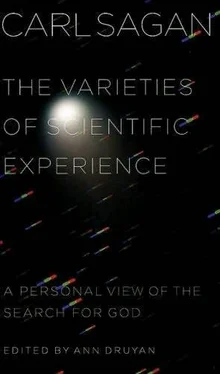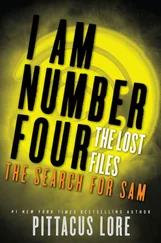Questioner:If you take a physical proposition, would you say you know that in every case the burden of proof rests to prove one type of case or the other type of case?
CS:The burden of proof always falls on those who make the contention.
Questioner:Well, all right. Yes. But only in the sense that it's disproving the other contention.
CS:No, no. It can be in an area where no one has any other contentions.
Questioner: Yes, well…
CS:It is-and it seems to me quite proper. Because otherwise opinions would be launched very casually if those who proposed them did not have the burden of demonstrating their truth. Here is a set of thirty-one proposals that I make, and good-bye. I mean, you would be left with a chaotic circumstance.
Questioner: Yes, all right. Yes, I see. I see your point. Yes.
CS:The audience is laughing. May I say I think these are… some of these are very good points, and this sense of dialogue I welcome and find delightful.
Questioner:I didn't agree with the way you presented some of the proofs for the existence of God. There was one other proof that I would like to give. I wouldn't call it a proof. I'd call it an argument, because I don't believe that you can prove in absolute logical terms the existence of God.
CS:So we are in agreement.
Questioner: There was an eminent scientist called Sir James Jeans, a Fellow of our Boyal Society in the 1930s, who published a book called The Mysterious Universe, in which he went into great detail discussing the new discoveries of physics. And he presented a rather elegant argument concerning the existence of God, which was based on a very simple, almost unspoken law, the law being that if any two things interact, they must be in some way like. He then went on to say that it's quite possible for somebody who looks at the Sun at sunrise on a nice morning to have a beautiful, poetic thought about it. He looked at the chain of events, which went to producing that poetic thought. It started off in the Sun, with light being emitted, traveling across space, coming through the upper atmosphere, being refracted, and then eventually reaching the lens of the eye, being focused on the retina, and traveling as a nerve impulse to the brain, and then producing a thought.
Now, he said that there are two ways of looking at this. Either you can say that thought is a form of energy in some way, for its ability to interact with energy, or energy is a form of thought in some way.
CS:Those are two of a larger number of possible ways of looking at it.
Questioner:Two of a larger number. Yes. Now, scientists who restrict themselves to the purely rational view of man would say that, well, it's obvious, then, that thoughts are a form of energy.
CS:No, this is not a good argument. This is a 1950s premodern-neurology argument. "Thoughts are a form of energy."
Questioner:Well, it's equally valid to say that, you know, maybe the energy that's in the universe is in some way related to thought.
CS:They may be, perhaps, in some way related.
Questioner:If it is, for there to be one universe that everyone observes as being the same, there must be one being producing the thought.
CS:Why? Why? Why can't natural selection accommodate large numbers of unrelated organisms to the same laws of nature?
CS:I have a letter that I was sent that concluded by saying, "I have at times found your views somewhat naive and immature but hope for better things this week." I hope I have not disappointed. Let me read one remark of this deeply concerned person, who requested anonymity. He says, "On several occasions it has seemed to me that you try to quantify what is a qualitative experience. There is a spiritual and psychical world superimposed, as it were, on the physical. Worlds within worlds. Man is not just a physical being but a spiritual and a psychic entity, too."
Well, my only response is that this is a claim that, from my point of view, remains to be proved. I would have to ask, "What is the evidence that we are more than material beings?" I don't think anyone would doubt that matter is a part of our makeup. And the question is, what is the compelling evidence that it is not all?
Questioner:Sir, I have a feeling that we have a lot of growing to do. The scientist doesn't perhaps know yet how to bring a greater being into the picture, and suddenly there are psychic things that are spiritual. You're taking the wrong set of faculties to disprove the psychic element. You must use the similar faculty. So it will be hundreds of years before scientists can ever prove the psychic part of life.
CS:Would you grant the possibility that there is no psychic part of life?
Questioner:No.
CS:Not a possibility? Not a smidgen of doubt in your mind?
Questioner:I'm one of those who lives with one foot on each side of life. One foot on the psychic and a very practical other foot, as a businesswoman, on the world. I've proved it.
CS:What in general should we do in a dialogue like this? Here I am. I say that my mind is open. I am happy to see the evidence, and the response I sometimes get is, "I've had this experience. It's compelling to me. But I can't give it over to you." Now, doesn't that prevent any dialogue whatever? How are we to communicate?
Questioner:Well, you see, I think you're stopping with the mental faculties you have and saying, "This is me. This is wrong." Now, there are faculties that one could certainly not create, because they're already in the mind, spiritual faculties.
CS:Well, you see, I say they're not-that's not demonstrated- that there's no evidence that they exist. First you have to show that they exist before you can have a major program to encourage them.
Questioner:I don't know that you have to play the piano to know that you can.
CS:No. But I can require, at least, before I start practicing the piano that I see that a piano exists, that I see someone sit down at the piano, move his or her fingers, and produce music. That then convinces me that there is such a thing as a piano, there is such a thing as music, and it is not hopelessly beyond the ability of humans to produce music from a piano. But when I ask for something comparable in the psychic world, I am never shown it. I never have someone come up and produce an-I don't know-a twenty-foot-high psychic dragon. Or have someone come and write down on the blackboard the demonstration of Fermat's last theorem. There simply is never anything that you can get your teeth into. You understand why I feel a little frustrated about this?
Questioner:I do. Yes. But then you possess faculties that can open that door to you.
CS:You're relying on me to find the psychic world? No.
Questioner:I'm hoping every individual can find it for themselves. It's a question of education within oneself.
CS:I believe that before we do the education, we have to first demonstrate that there is something to be educated on. I don't for a moment maintain that there isn't an enormous amount we have yet to learn. I believe that we have in fact discovered the tiniest fraction of the wonders of nature that are out there. But I just think until those who believe in the spiritual or psychic or whatever-you-want-to-call-it world can actually demonstrate in any way its existence, that it is not likely that scientists will be devoting a great deal of their time to adumbrating this possibility.
Читать дальше










